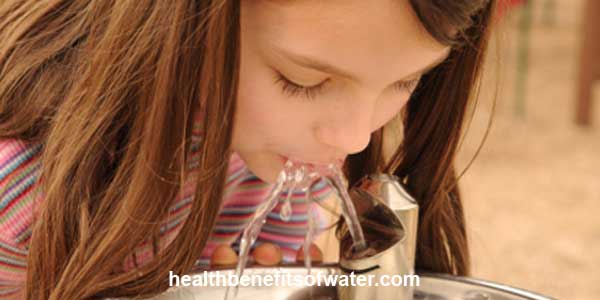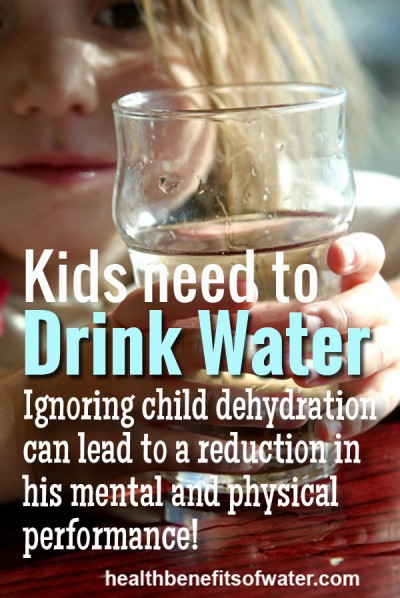Did you know that ignoring child dehydration can lead to a reduction in their mental and physical performance?
But failure of drinking water can also increase children’s risk for a whole range of health problems.

What are the health effects of child dehydration
Some of them are:
- tooth decay,
- diabetes,
- nutritional deficiencies,
- childhood obesity,
- heart disease and
- neurological disorders.
Children need more water than adults – tells the United States National Institute of Health. And this is because of their high energy output. I think that it is imperative that parents understand these following warnings:
- Mild dehydration of only 2% can cause a 20% reduction of a child’s mental and physical performance.
- A more excessive loss of water, like 3 %, can lead to more severe conditions like heat stroke, low blood pressure, rapid heartbeat and/or rapid breathing or even fever.
How dehydration can affect your child’s brain
The brain is made up of about 80% water, an essential element in neurological transmissions. Evidence shows that cognitive performance decreases by 10% in healthy youngsters when they are thirsty. The key to increasing the brain’s ability to learn and retain information, is drinking water in small quantities throughout the day.
** Headaches, irritability and sleepiness are often signs of child dehydration, as well.
Child Dehydration can lead to asthma and allergies
In his book called: ABC of Asthma, Allergies & Lupus: Eradicate Asthma – Now! Dr. by F. Batmanghelidj teaches us about how drinking water is directly related to the prevention and cure of childhood asthma
The telltale signs of child dehydration
 There are several circumstances that can lead to a child dehydration. For instance your kid:
There are several circumstances that can lead to a child dehydration. For instance your kid:
- has been ill with symptoms such as fever or diarrhea,
- is vomiting,
- participates in intense physical activity, such as high energy sports that require long periods of running, like soccer
In any of these cases, it is vital to watch for the danger signs of dehydration, which can include:
- dry or sticky mouth
- dry, cool skin
- fatigue, lethargy and irritability
- dry , itchy eyes
- low or no urine for several hours, or small amount of dark yellow urine
How to Avoid Child Dehydration
1. Replace soft drinks with simple water
Different surveys show that at school children drink less water than they should and this, often in the favor of colored, sweet drinks.
As a parent, it is your responsibility to educate and prevent your children to become addicted to artificially colored, flavored and sweetened drinks. As an idea, kids can be provided with an easy to refill, nicely colored and funny child water bottle.
** This can be a delicate task, but you can make it fun 🙂 Just challenge them to choose their favorite colors and designs. Play the game as well, and choose your own great looking bottle! The kids will watch you and follow your example. Eventually, they will be proud of doing this and be more likely to drink water rather than other unhealthy beverages.
2. Show your child how to check urine
- Large amounts of pale urine indicates good hydration, while small amounts of dark urine indicates a degree of dehydration. Teach your child to tell you if they notice this danger sign.
3. More fruits and vegetables should be added to children food
- Fruits and vegetables add to the daily intake of necessary fluids!
***Caution: Babies should not be given water (unless specifically recommended by the doctor). They get hydrated from the milk the drink and food they eat.
Word of the day: Delicate

